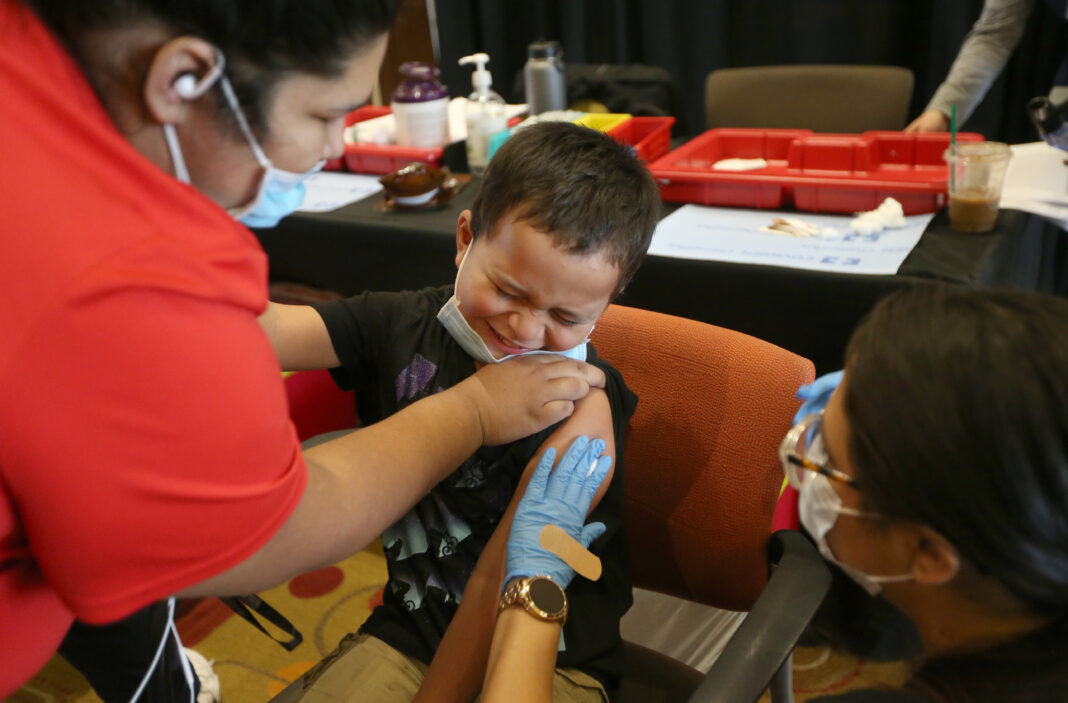EDINBURG — Many parents throughout the Rio Grande Valley wasted no time in getting their young children vaccinated against COVID-19, leading DHR Health to reach capacity at their vaccine clinic Wednesday.
On the first day that COVID-19 vaccinations became available for children between 5 and 11 years old, staff at DHR Health administered vaccine doses to more than 400 children at the Edinburg Conference Center at Renaissance.
Parents began lining up at the clinic the morning after the Centers for Disease Control and Prevention issued a recommendation for children 5 to 11 to be vaccinated against COVID-19.
Shortly after that recommendation Tuesday, DHR Health announced it would be offering the vaccine to those kids during their regular vaccine clinic hours, which are Tuesday through Friday from 9 a.m. to 8 p.m.
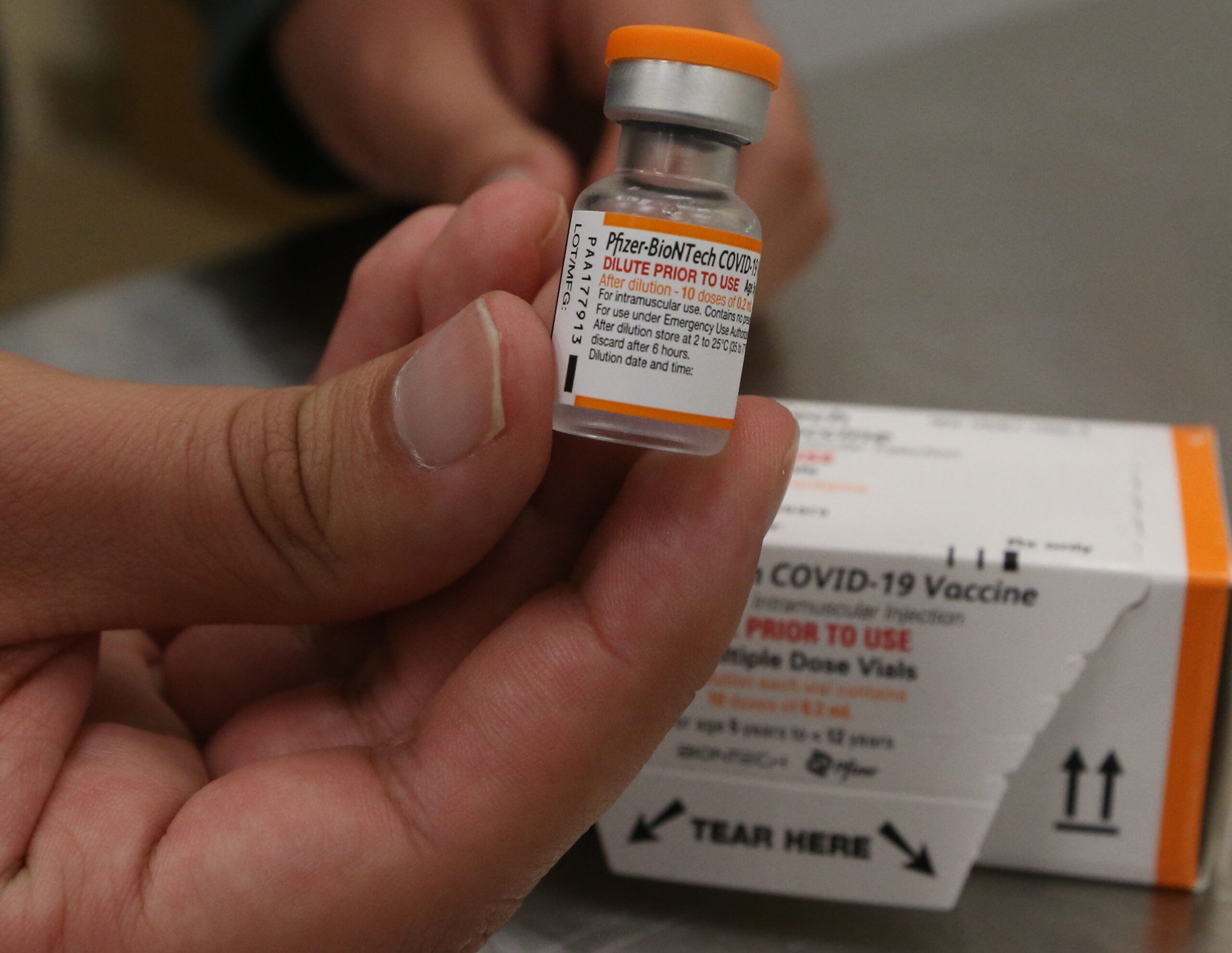
The clinic is offering doses of the Pfizer-BioNTech vaccine which is, so far, the only dose to have received emergency-use authorization from the U.S. Food and Drug Administration. The approved doses for those eligible children are one-third of the dose that were administered to adults and older children.
DHR is expected to receive 7,000 of those doses per week.
The expansion of vaccine availability comes as children continue to be the age group with the highest number of new COVID-19 infections reported on a daily basis in the county.
In Hidalgo County, a total of 3,402 students have tested positive since the county began tracking cases in schools in August.
One of those students was 11-year-old Ricardo Cardenas who, along with his sister, 5-year-old Brianna, waited in line to get vaccinated Wednesday.
“This year, he ended up getting COVID at school, which is a disappointment,” said John Cardenas of Edinburg, the kids’ father.
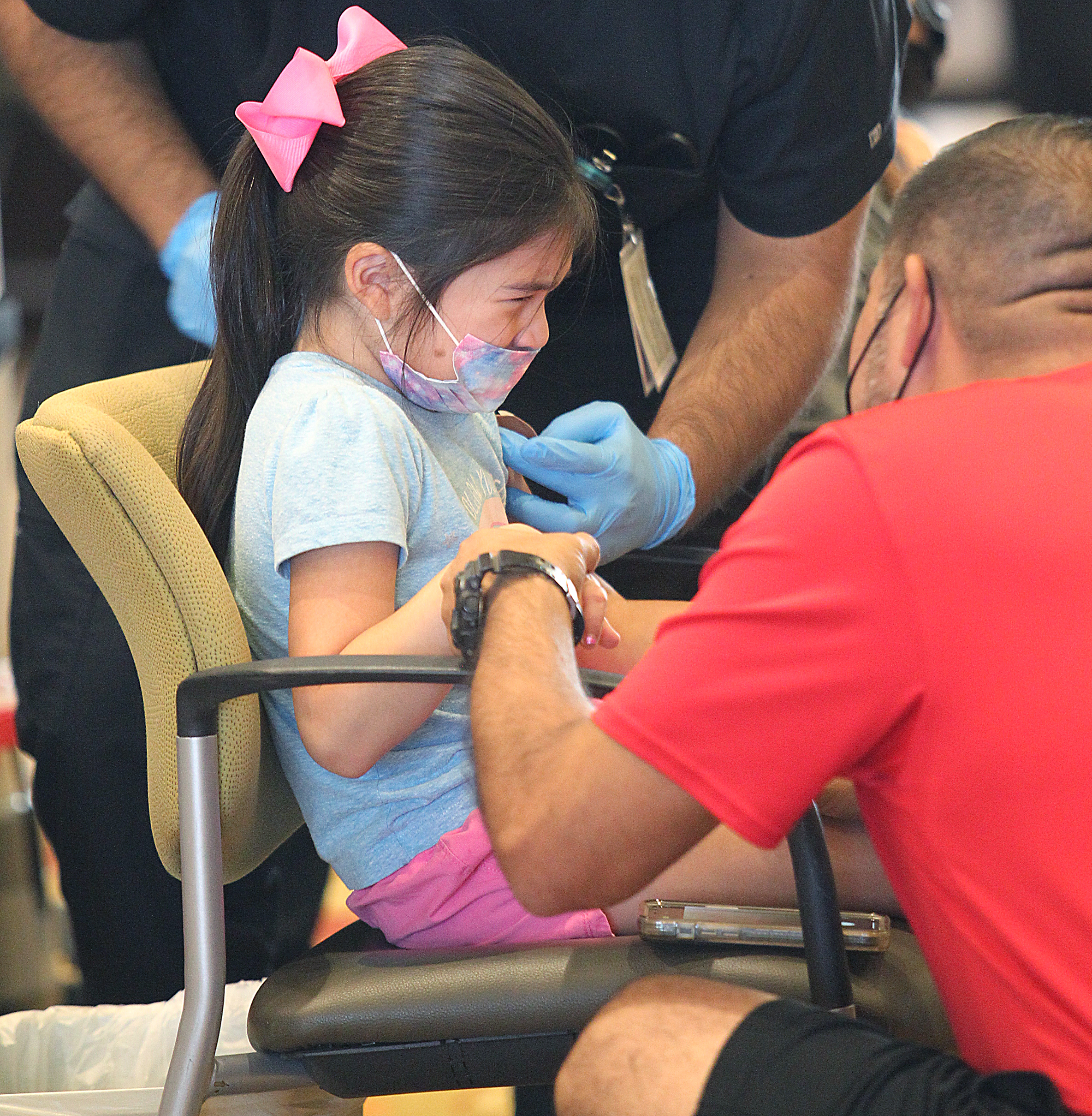
He and his wife, a teacher with Edinburg CISD, had both gotten vaccinated and were careful to not go out to eat or be otherwise in public.
“We quarantined for two weeks and it was probably the hardest two weeks for us because we didn’t know how he was going to react,” Cardenas said. “The good thing is that he had very mild symptoms and so when we started to hear that there was going to be a vaccine for the kids, we had kind of already made our decision that we were going to bring them and get vaccinated.”
He said they were especially concerned about their daughter because of her young age.
“That’s why we made the decision to go ahead because it’s still out there, they’re still going to school, and so we thought it’d be best for them, for us to bring them in and get vaccinated,” he said. “The way I see the vaccination, it’s just like for all of the other vaccines that we’ve had. I don’t have an issue with it.”
When Lluvia McMahon of McAllen heard that the vaccine was finally available for her two children, she knew they had to go right away.
“I’ve been waiting for this for so long, since the adults got their vaccines,” said McMahon who brought her 9-year-old daughter, River, and her 7-year-old son, Lake.
“We’ve sort of just been keeping at home and when the decision was made that they had to go back to school, my husband and I were really worried about the exposure,” McMahon said.
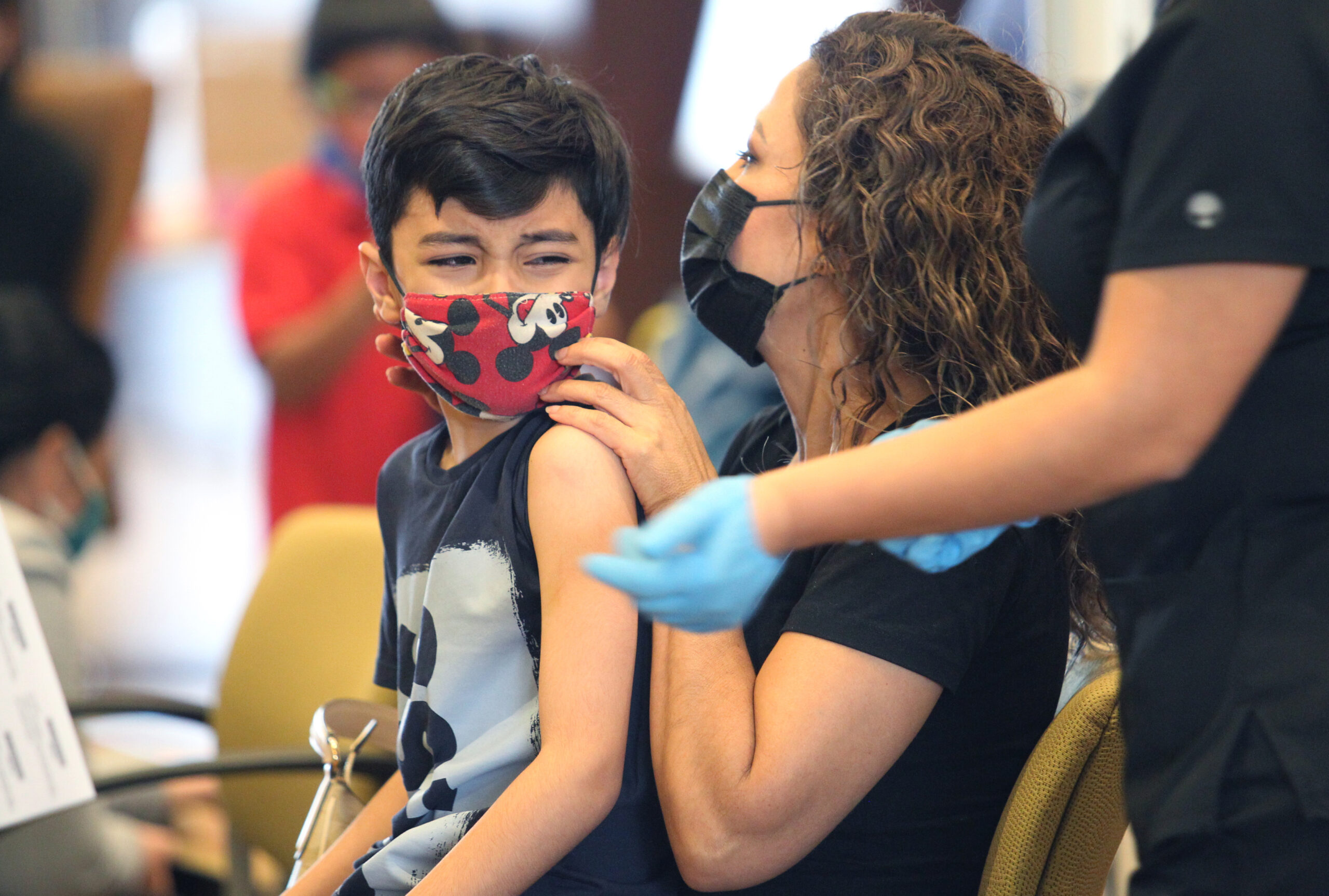
Like for all kids, the return to school has been abnormal and a bit difficult with the safety precautions that schools have implemented.
“I’m just happy that we’re here and that we’re going to get the shot,” McMahon said.
While some parents were eager to finally immunize their children against COVID, vaccine hesitancy among other parents is expected which Dr. Fiorella Llanos, a cardiologist with DHR Health, said she understands.
“As a mother, I would never want to put something in my kids’ bodies that would put them in harm’s way, but let’s not forget that to this day, there’s been 691 children, American children, that have died from COVID-19,” Llanos said.
Llanos said the possible side effects for children are similar to the mild to moderate side effects seen among adults — sore arm, fatigue, headache, body aches, fever and swollen lymph nodes.
“Most of children develop this after the second vaccine dose within two days,” Llanos said. “Those who presented side effects, they tend to be self-resolving within two days.”
One of the oft-heard of concerns is the fear of children developing myocarditis or pericarditis after receiving the vaccine. Myocarditis is the inflammation of the heart muscle while pericarditis is the inflammation of the outer lining of the heart.
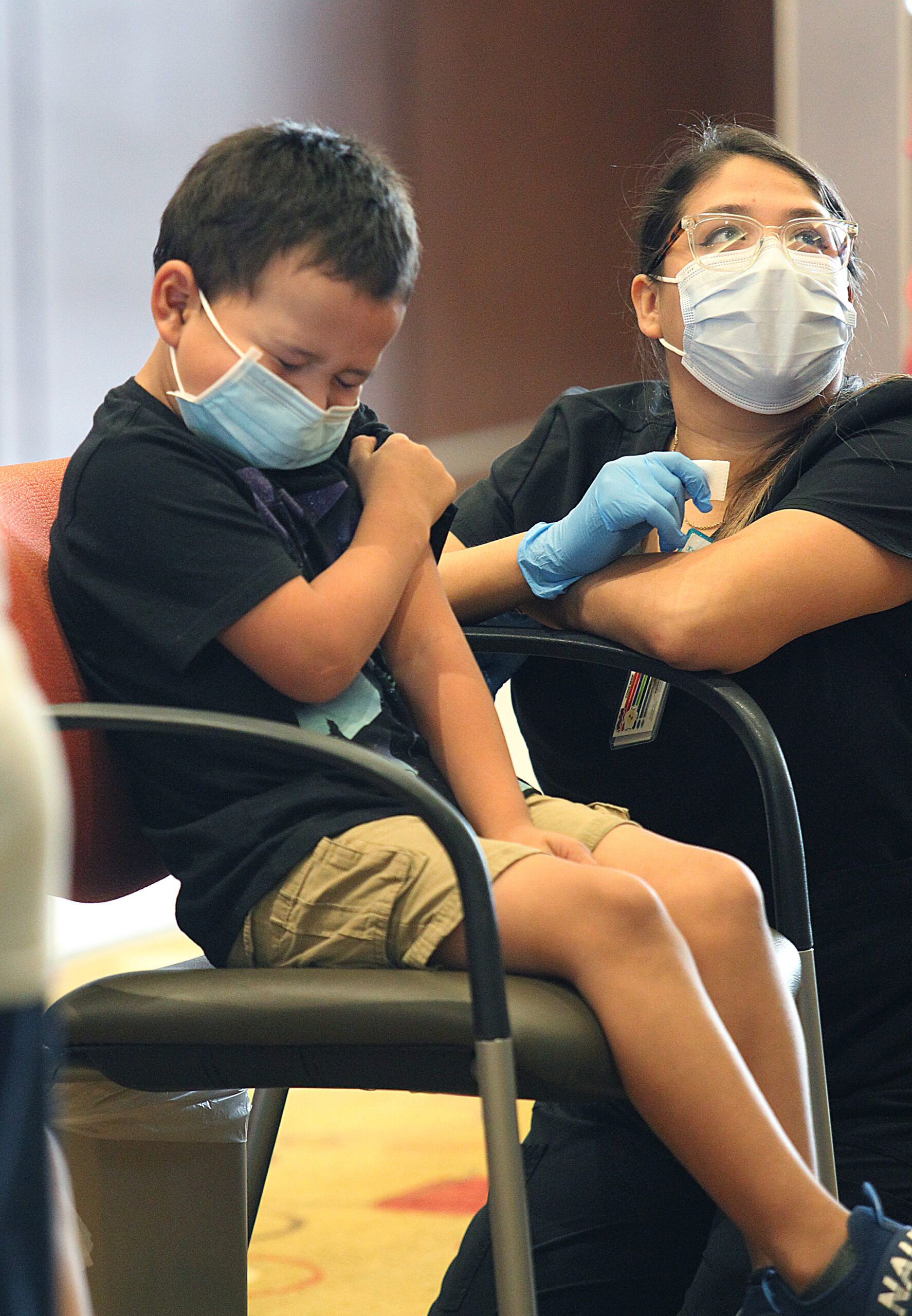
While there have been cases of male adolescents and young adults developing those conditions after vaccination, the CDC still recommends the vaccine, stating that the health risks from COVID far outweigh the potential risk of myocarditis or pericarditis.
Llanos said the clinical trials conducted among children 5 to 11 were even more encouraging.
“From the 3,100 children that got the vaccine, none of them developed this miocarditis or paracarditus,” Llanos said. “None of them developed life-threatening allergic reactions to this.”
She pointed out that COVID infections are associated with many more side effects such as respiratory failure and blood clots.
“We can prevent further deaths and we can give our kids back their lives,” Llanos said. “(Have them) worry about playing and learning, not worry about getting sick or getting grandma sick.”
She encouraged parents to reach out to their child’s pediatrician with any further concerns they had over the vaccine.
“Hopefully, many parents consider getting the vaccines so our kids can be safe and they can go back to their normal lives,” she said.

